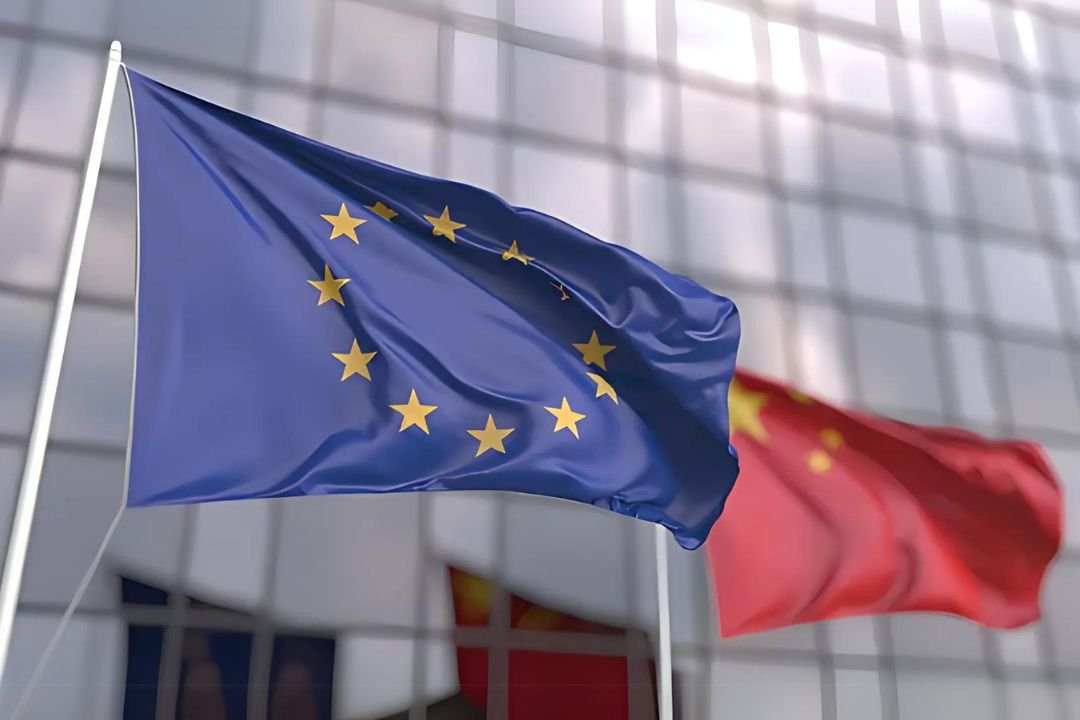
Frans Timmermans has resigned from his powerful role in the European Union (EU) so he can run to become the next Prime Minister of the Netherlands.
Who is Frans Timmermans?
Mr. Timmermans is 62 years old. Since 2014, he has been the Executive Vice President of the European Commission. This means he was one of the top leaders of the EU. His main responsibility was leading European climate policy and goals as the EU’s climate chief.
He served in important jobs in the EU for 10 years total. Before that, from 2012-2014, he was the Foreign Minister of the Netherlands. This position is in charge of the country’s relationships with other nations around the world.
Why Did Timmermans Resign?
Mr. Timmermans resigned because he wants to run to become the new Prime Minister of the Netherlands. There will be early elections held on November 22nd to select the next Dutch leader.
The previous Prime Minister, Mark Rutte, stepped down recently after his governing coalition collapsed over disagreements about asylum policies. This created an unexpected opening for a new Prime Minister to be elected sooner than planned.
Mr. Timmermans thinks he has a strong chance of winning as a candidate from left-wing political parties. He was selected to lead a coalition made up of two parties – the Labour Party and the GreenLeft party. In a vote among party members, over 91% supported Mr. Timmermans to be their candidate for Prime Minister.
Although Mr. Timmermans’ term as the EU’s climate chief was not ending until after the next European Parliament elections, the head of the European Commission, Ursula von der Leyen, accepted his resignation so he could run for prime minister’s office in the Netherlands.
What Has Timmermans Accomplished as EU Climate Chief?
In his role as Executive Vice President for the European Green Deal, Mr. Timmermans held great influence over EU environmental policies. He led efforts for Europe to become the first climate-neutral continent by 2050. This means major reductions in greenhouse gas emissions through initiatives like increasing renewable energy and electric vehicles.
Under Mr. Timmermans’ leadership, the EU also passed ambitious laws like the European Climate Law to cut emissions by at least 55% by 2030 compared to 1990 levels. Additionally, he introduced a Carbon Border Adjustment Mechanism that will put a carbon price on imports to encourage greener production.
Ms. von der Leyen praised Mr. Timmermans’ “outstanding contribution and strong personal dedication” to advancing climate goals. Many experts credit his tireless work over the years with driving Europe’s progress on battling climate change.
Concerns About EU Climate Efforts After Timmermans’ Resignation
Mr. Timmermans announcing that he was leaving his EU role to run for prime minister’s office in the Netherlands raised some concerns. There is uncertainty about how his resignation will impact the EU’s efforts to influence international climate negotiations.
In November 2023, Egypt will host the next major United Nations climate summit called COP28. Mr. Timmermans has played a key role in past climate talks on behalf of the EU. With him departing, the EU may be less effective in pushing for ambitious global agreements at COP28 and beyond.
Who Will Take Over as EU Climate Chief?
For now, the Slovakian politician Maroš Šefčovič will temporarily take over Mr. Timmermans’ duties. Mr. Šefčovič, age 57, is already an EU Commission Vice President in charge of overseeing relations with the UK and Europe’s gas supply.
However, Ms. von der Leyen said a new Dutch EU Commissioner will be appointed who is expected to eventually assume the climate leadership position. It is not confirmed yet if the new Dutch Commissioner will be given the exact same influential responsibilities that Mr. Timmermans held.
What Comes Next for EU Climate Efforts?
Despite losing its top climate official, the EU emphasized it remains committed to continuing efforts to combat climate change. Ms. von der Leyen outlined focus areas like boosting clean technology innovation, modernizing energy infrastructure, and securing access to critical raw materials needed for green technologies.
Additionally, she stressed the importance of collaborating with industries, farmers, forest owners and EU citizens to gain support for reforms. The EU also plans to develop an international strategy that aligns climate goals with economic and geopolitical interests around the world.
The Coming Election Will Shape the Netherlands’ Role on Climate
The November 22 election in the Netherlands will have significant implications for Dutch climate policy as well.
Mr. Timmermans aims to push the Netherlands to take an even more progressive stance on environmental issues if elected Prime Minister. But he faces stiff competition from the conservative People’s Party for Freedom and Democracy, which is currently leading in polls.
The election results will determine whether the Netherlands continues to push for ambitious climate targets in alignment with the EU under Timmermans’ leadership or potentially scales back efforts under a more conservative government.
The stakes are high not just for the future of the Netherlands, but also for Europe’s broader climate agenda. Mr. Timmermans stepping down could be a major loss for EU climate leadership. But his bid to become Prime Minister of his home country gives him an opportunity to lead on climate from another crucially important position.
The coming weeks and months will reveal how both the EU and the Netherlands plan to move forward on the defining issue of climate change without such an influential figure at the helm. But Timmermans’ legacy of driving real progress through landmark policies will have a lasting impact no matter what comes next.










